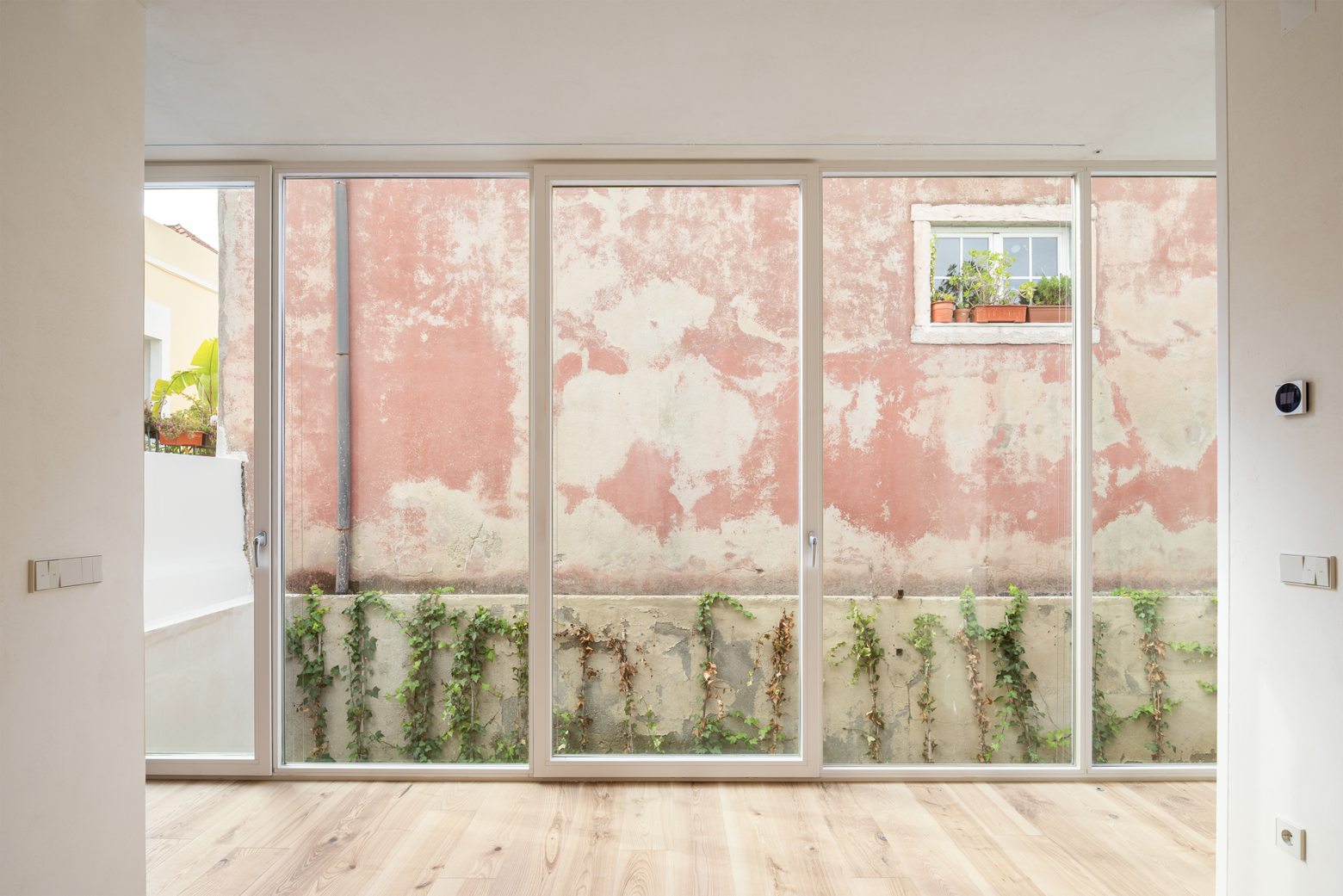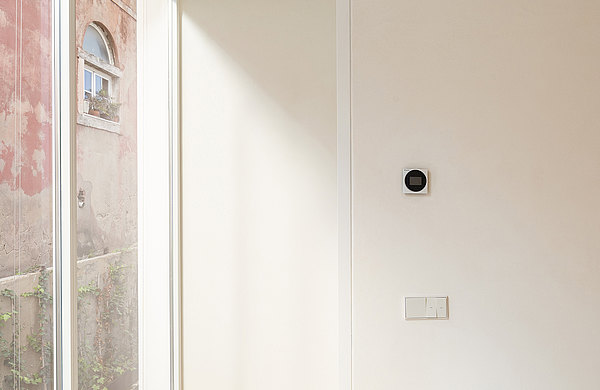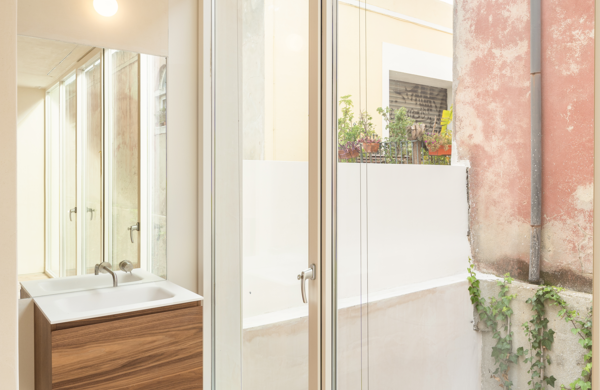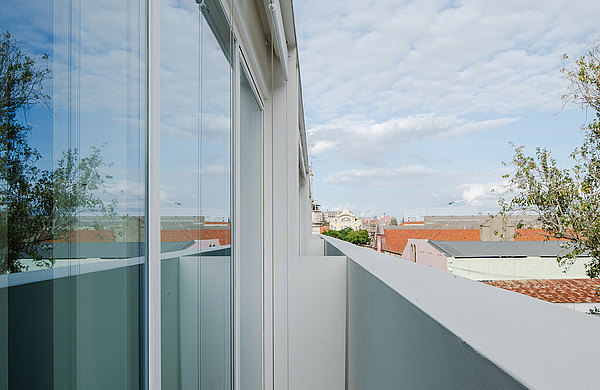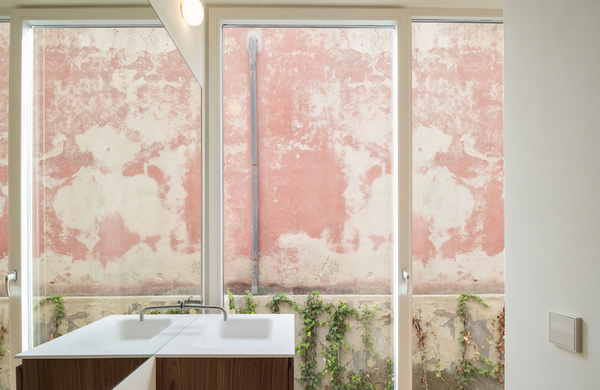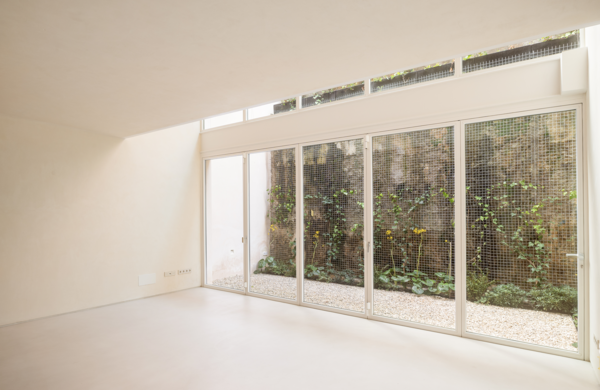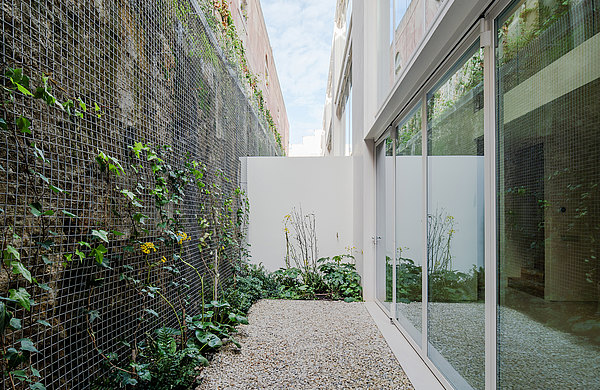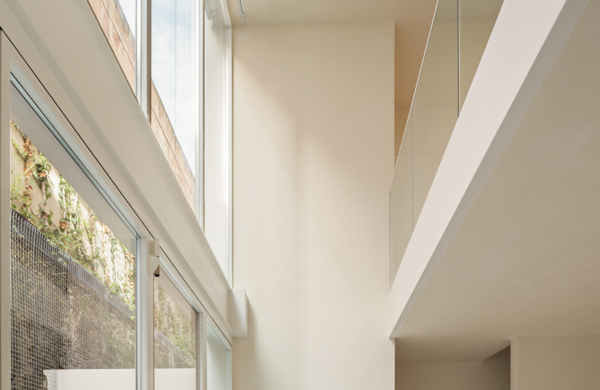Alba, Lisbon
Industrial heritage reimagined in Lisbon
In 2019, a former warehouse in Marvila, Lisbon, was acquired with the ambition to rehabilitate and convert it into housing. Originally serving as a construction materials depot—filled with pipes, metal components, and inventory—the building gave little indication of the potential it concealed, steadfast in its industrial use and character.
The austere warehouse, with minimal openings, was subject to strict façade restrictions that preserved the streetscape. A neighboring building of similar character reinforced the need for contextual coherence. Reimagined as five independent townhouses, each with its own street entrance, Alba brought to life the traditional urban typology of homes opening onto the street, while offering a sense of exclusivity to each residence. Conceived with ascending levels of privacy culminating in top-floor bedrooms, the design maintained its core hierarchy despite minor adjustments during development.
Light, ventilation and spatial strategy
One of the project’s key challenges was introducing adequate natural light and cross ventilation into a structure that originally featured only four small windows and an oversized gate, that was not part of the original building. Strict planning regulations required the preservation of the main façade, limiting the scope for new openings. A carefully considered intervention saw the gate discreetly closed off, while a fifth arched window—executed in slender steel profiles exactly matching the existing four—was added, fully harmonized with the original composition. The entrance doors were seamlessly integrated and precisely aligned with the window openings, reinforcing the clarity and rhythm of the façade—an approach that convinced the city council’s technical committee of its respect for the building’s architectural integrity.
Beyond the interventions on the main facade, strategically recessing the rear façade enhanced natural light and interior comfort, creating five private patios—one for each townhouse—framed by wall-to-wall, floor-to-ceiling windows. Positioned between the existing retaining wall (required by the site’s grade change) and the recessed façade, these patios act as light wells, channeling daylight and fresh air deep inside. The approach balances the solidity of the wall with the calm of private outdoor retreats in the heart of the city.
Inside, a careful interplay of natural light, precise proportions, and thoughtfully selected materials creates a serene atmosphere. Steel elements contrast with warm timber flooring and neutral surfaces, merging the building’s industrial heritage with contemporary comfort and timeless simplicity.
Lasting impact
Building materials were integral to the project’s architectural identity. Steel was chosen not only for its structural performance but also as an explicit reference to Marvila’s industrial heritage. Its strength allowed for slender sightlines, precision-welded connections, and minimal maintenance. The absence of visible rubber gaskets—commonly found in other systems—further emphasized the clarity and purity of the architectural expression.
To ensure consistency throughout the project, the forster unico system was specified for all elements: entrance doors, folding windows, expansive fixed glazing, and bespoke curved components. The system’s cohesive aesthetic and structural robustness were fully realized through EME Singular’s meticulous metalwork, which ensured the refined steel detailing was executed with precision—fully expressing the system’s inherent thermal and structural performance.
Sustainability was a guiding principle from the outset. The forster unico system, free of plastic thermal breaks, delivers excellent thermal performance while supporting circular economy objectives. Steel, as a responsible and enduring material, aligns with the project’s long-term sustainability goals.
“This building preserves the street’s identity while fully realizing the client’s vision, enriching the urban fabric, enhancing everyday city life, and protecting its architectural heritage. Designed to endure, it will remain meaningful for generations to come.”
— Miguel Abecasis, Abecasis Arquitectos
Lisbon, Portugal
Products:
Sheet metal entrance doors with forster unico
Folding windows, fixed glazing and curved opening windows with forster unico
Developer: Ribemon Partners (PT)
Architecture: ABECASIS (Miguel Abecasis / Ana Moniz) (PT)
Metal construction: Emesingular, Braga (PT)
Contractor: Detailsmind, Rio de Mouro (PT)
Construction supervision: Gesconsult (PT)
Photography: Mauro Motty

